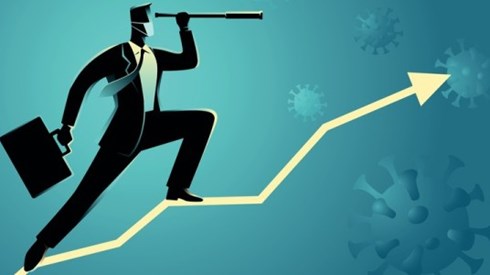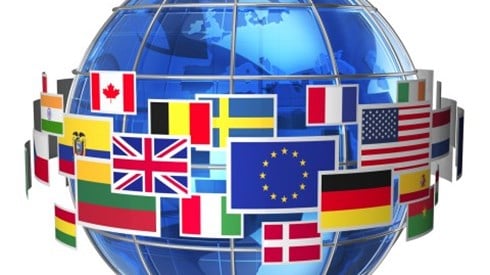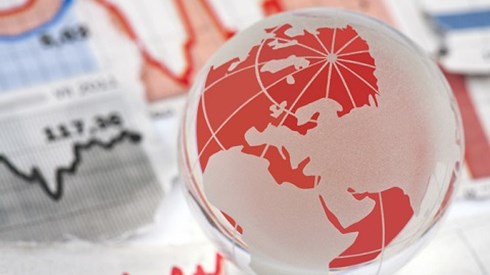Learning from the Pandemic Means Preparing Broadly for Future Crises

January 27, 2021

As businesses and governments respond to the COVID-19 pandemic, it's important that the experience leads decision makers to improve risk processes, capabilities, and culture, according to a new report.
The Global Risks Report 2021, 16th Edition from the World Economic Forum (WEF) suggests that "If lessons from this crisis only inform decision-makers how to better prepare for the next pandemic—rather than enhancing risk processes, capabilities and culture—the world will be again planning for the last crisis rather than anticipating the next."
In fact, the COVID-19 response offers four governance opportunities to strengthen the overall resilience of countries, businesses, and the international community, according to the WEF.
- Formulating analytical frameworks that take a holistic and systems-based view of risk impacts
- Investing in high-profile "risk champions" to encourage national leadership and international cooperation
- Improving risk communications and combating misinformation
- Exploring new forms of public-private partnership on risk preparedness
The WEF report notes that in 2020 the risk of a global pandemic became a reality and says that as governments, businesses, and societies address the damage caused by the crisis "strengthening strategic foresight is more important than ever."
But, with the pandemic increasing the world's focus on risk, there are opportunities to leverage that attention to find more effective ways to identify and communicate risk to decision makers, the report says.
The economic, technological, and reputational pressures of the present crisis put businesses at risk of a "disorderly shakeout," the report says, that threatens to leave a large number of workers and companies behind in the markets of the future.
Governments also must manage between the pandemic and economic contraction, according to the report, while creating new opportunities critical to social cohesion and the viability of their populations.
And, if environmental considerations aren't confronted in the short term, "environmental degradation will intersect with social fragmentation to bring about dramatic consequences," the WEF report says.
The WEF Global Risks Report is based on the organization's annual Global Risk Perceptions Survey, completed by over 650 members of the World Economic Forum's leadership communities.
The 2021 survey found that the top global risks by likelihood were, in order, extreme weather, climate action failure, human environmental damage, infectious diseases, biodiversity loss, digital power concentration, and digital inequality. Infectious diseases were new to the top five most likely risks.
Among the global risks expected to have the greatest impact were, in order, infectious diseases, climate action failure, weapons of mass destruction, biodiversity loss, natural resource crises, human environmental damage, and livelihood crises. Infectious diseases had last appeared among the risks expected to have the greatest impact in 2015, when it held the second spot.
In looking at the time horizons over which survey respondents expect risks to become critical threats, the report notes that economic risks feature prominently in the 3–5-year time frame, including asset bubbles, price instability, commodity shocks, and debt crises. Also in that time frame are geopolitical risks including interstate relations and conflict and resource geopolitization.
The report suggests that the COVID-19 pandemic has accelerated the Fourth Industrial Revolution, as businesses and individuals were forced to move increasingly online for remote work, e-commerce, education, and other interactions.
"These shifts will transform society long after the pandemic and promise huge benefits—the ability to telework and rapid vaccine development are two examples—but they also risk exacerbating and creating inequalities," the report says.
The report notes that survey respondents rated "digital inequality" as a critical short-term threat. "A widening digital gap can worsen societal fractures and undermine prospects for an inclusive recovery," the report says. "Progress towards digital inclusivity is threatened by growing digital dependency, rapidly accelerating automation, information suppression and manipulation, gaps in technology regulation, and gaps in technology skills and capabilities."
The report also suggests that as business moves forward from the shock and government stimulus of COVID-19, there is the risk of a "volatile shakeout" of the global business landscape. "Protectionism, technological transformation, and social unrest—among other trends—have been disrupting economic activity for some years, but the pandemic has given them fresh momentum," the report says.
National agendas, technology, and heightened public scrutiny are likely to be the sources of many of the challenges businesses face post-pandemic, according to the WEF report.
Amplified protectionism in many countries may increase costs and uncertainty for businesses, the report says. Meanwhile, the rapid move to digital operations forced by the pandemic has strengthened technology giants but might mean higher costs and questions over control of data and technology infrastructure for smaller firms.
The rapid transformation might also prompt large technology companies to acquire start-ups and look into expansion into other sectors such as retail, health care, transportation, and logistics, the report says.
Meanwhile, in the wake of the COVID-19 pandemic, consumers and employees are scrutinizing businesses' values more closely, according to the WEF report. Businesses must anticipate and respond to that scrutiny, the report says.
Ultimately, businesses that emerge from the pandemic "with their resilience tested can embrace a huge opportunity to fast-track progress to a better normal," the report says.
"The transformation of businesses and industries requires agile and distributed workforces, hybrid working options, and comprehensive reskilling and upskilling of employees," the report says. "Companies will need to rethink their physical space and organizational design as they transition employees into new roles and navigate the opportunities of automation and digitalization—without reinforcing the systemic inequalities laid bare by COVID-19."
Businesses that reflect societal values can support a broad-based and sustainable economic recovery and growth and better position societies to meet current and future crises, the report says.
The World Economic Forum report was sponsored by Marsh and McLennan, SK Group, and Zurich Insurance Group.
January 27, 2021


